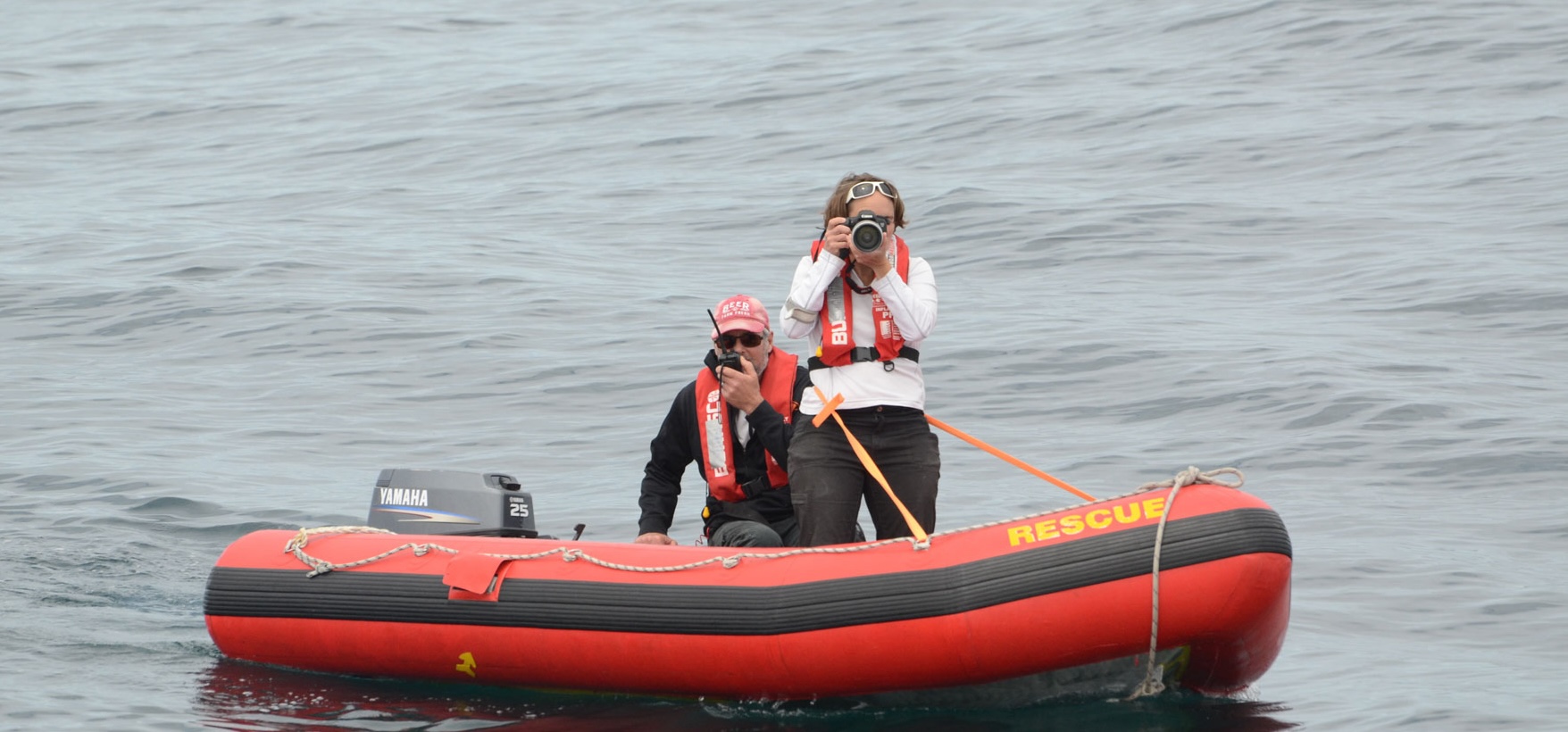
By OSU News Service
A research and outreach effort led by Oregon State University to protect whales and help sustain Oregon’s commercial Dungeness crab fishery has been recognized as one of four regional winners of the 2025 W.K. Kellogg Foundation Community Engagement Scholarship Award.
The Oregon whale entanglement project is led by Leigh Torres, researcher at OSU’s Marine Mammal Institute in Newport. The project advances to a national competition for a $20,000 prize.
This is the second consecutive year OSU has received a Kellogg regional award and the third time in the university’s history.
The project began when Oregon’s largest commercial fishery faced a threat of increased reports of whale entanglements in fishing gear. Entanglement can drown whales, cause injury, and impair their ability to swim or feed.
Since 2016, OSU scientists have worked with the Oregon Department of Fish and Wildlife, commercial fishing industry members and environmental organizations to identify high-risk areas and seasons for entanglement and develop strategies to reduce them.
The research project produced findings that helped form ODFW regulations adopted in 2020 to protect whales while sustaining the fishery’s economic health.
Researchers logged more than 42,000 miles of surveys over 376 days, flying in U.S. Coast Guard helicopters and working aboard small boats and research vessels to track more than 3,500 whales. They combined these sightings with data to map monthly whale densities from 2011 to 2020, then overlaid the maps with crab fishing locations to pinpoint “hot spots” of entanglement risk.
Findings revealed that entanglement risk peaks in nearshore waters during April, when whales move into Oregon waters for seasonal feeding, overlapping with the end of the crab season. Risk also varied with ocean conditions, such as upwelling events and marine heat waves.
“Although there can be inherent tension between commercial fishing and whale entanglements, no one wants to catch a whale, and we all want a thriving, sustainable Dungeness crab fishery,” Torres said. “Our findings are an important step toward achieving both goals.” I am so grateful for the trust our project partners — like fishermen and managers — have put in me and our research team to work together and produce results to inform solutions to this problem.”




















